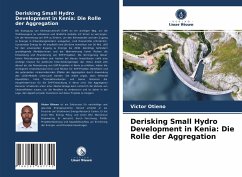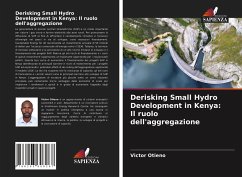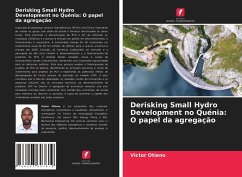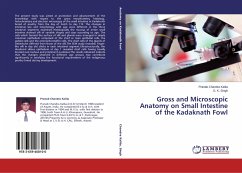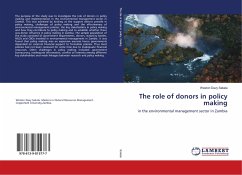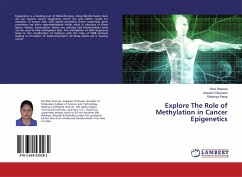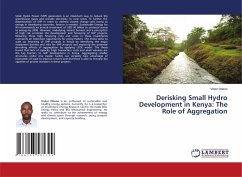
Derisking Small Hydro Development in Kenya: The Role of Aggregation
Versandkostenfrei!
Versandfertig in 6-10 Tagen
27,99 €
inkl. MwSt.

PAYBACK Punkte
14 °P sammeln!
Small Hydro Power (SHP) generation is an important way to reduce the greenhouse gases and provide electricity to rural areas. To further the dissemination of SHP in order to address climate change and access to energy in developing countries, finance is needed. Sustainable Energy for All recommends an annual investment of USD 50 billion to universal access to energy by 2030. However, underlying market barriers and a perception of high risk constrain the development and financing of SHP projects. Reducing these high financing risks and costs in these investments represents an important opportun...
Small Hydro Power (SHP) generation is an important way to reduce the greenhouse gases and provide electricity to rural areas. To further the dissemination of SHP in order to address climate change and access to energy in developing countries, finance is needed. Sustainable Energy for All recommends an annual investment of USD 50 billion to universal access to energy by 2030. However, underlying market barriers and a perception of high risk constrain the development and financing of SHP projects. Reducing these high financing risks and costs in these investments represents an important opportunity for policy-makers. This thesis seeks to scale up financing of SHP projects in Kenya by identifying the major investment barriers and risks for SHP projects and exploring the potential de-risking effects of aggregation by applying LCOE model. The thesis found that lack of capacity, high transaction costs and small volumes are the key barriers to SHP development in Kenya. Aggregating smaller structures under one master facility can certainly take advantage of economies of scale to improve returns and therefore is able to increase the appetite of private investors in these projects.



